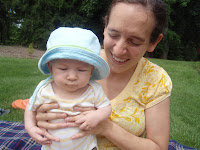Growing up in a religious home, ‘faith’ was one of those
words that was thrown into conversations with very reverent, deliberate tones,
and met with knowing nods and great Christian sincerity. And it was also one of those words that
whenever someone asked me what it meant, my mind went blank and my palms
got sweaty. I just didn't know.
There was a vague sense that to have faith
would make my life better, it would make me better. And perhaps it possibly somehow related to ‘trust’. Maybe I believed that Faith = trusting in
good.
Sitting to write this now, my mind is blank and my palms are
sweaty. I’m surprised that so little has
changed since my evangelical days. I
still want to be a better person living a better life marked by some great
faith. Mostly I want to stop worrying so
much and live with a peace that melts the icy knot of fear that burrowed into
my stomach decades ago and has never warmed enough to disappear
.
But it turns out that I am so tired (I mean literally
exhausted) of living my life with the assumption that to have faith is to trust
that ‘good’ things will happen at the exclusion of ‘bad’ things. It’s difficult to explain, but life
experience has taught me over and over again that the one thing we can trust is
that beautiful, exhilarating and ‘good’ things are exactly as likely and expected
as ugly, defeating and ‘bad’ things.
Faith is a problematic word for me because I get stuck. I get stuck in the who’s and the what’s…I get
stuck in the nouns that we substitute for the word ‘good’ in my previously
stated faith equation. Some options I've
considered for this equation in the past include:
1. Faith = trusting in (God): In the God I grew up knowing who was a father, a male. Who gives caveats to the powerful and consolation prizes to the weak. Who unleashes violence with some frightening sort of calculation.
2. Faith = trusting in (nature): In Mother Nature who provides lavishly and
drums out a cadence of life. But who
unleashes violence with some frightening sort of arbitration.
3. Faith = trusting
in (reason): In science and technology and innovation that makes life
easier for some, more complicated for others, and nearly always perpetuates
violence against other sentient beings.
4. Faith = trusting
in (the inherent goodness of people):
As in, believing that our violence and hatred will be kept to a minimum. Or that the propensity to rape and mutilate
is the exception whether in war time or peace time.
Faith = trusting in words or rocks or clay or fashion or melodies
or silences or vacuum cleaners or football or turkeys or sky or bells or
laughter or life or death or saviors or communism or poetry or democracy or the forces of
capitalist markets, etc.
At this point in my life I am realizing to choosing to place
my faith in anything at all is exactly the reason I’m well on the way to a
stomach ulcer before the age of 30. Putting faith in anything at all guarantees a disappointing let-down of a crash into reality.
In the end, I am stunned that the definition of faith that
makes the very most sense to me, that gives me the most peace about the state
of the crazy world comes from the Christian bible:
Now faith is being sure of what we hope for, and certain of
what we do not see.
And now a poem, which as usual says everything more succinctly and lyrically than any essay possibly could:
Before He Makes Each One by Rainer Maria Rilke
Before he makes each one
of us, God speaks.
Then, without speaking,
he takes each one
out of the darkness
And these are the cloudy
words God speaks
before each of us begins:
"You have been sent out
by your senses. Go
to the farthest edge
of desire, and give me
clothing: burn like a great
fire so that the stretched-out
shadows of the the things
of the world cover
me completely.
Let everything happen
to you: beauty and terror.
You must just go--
no feeling is the farthest
you can go. Don't let
yourself be separated
from me. The country
called life is close.
By its seriousness,
you will know it.
Give me your hand."
-Joy
Before He Makes Each One by Rainer Maria Rilke
Before he makes each one
of us, God speaks.
Then, without speaking,
he takes each one
out of the darkness
And these are the cloudy
words God speaks
before each of us begins:
"You have been sent out
by your senses. Go
to the farthest edge
of desire, and give me
clothing: burn like a great
fire so that the stretched-out
shadows of the the things
of the world cover
me completely.
Let everything happen
to you: beauty and terror.
You must just go--
no feeling is the farthest
you can go. Don't let
yourself be separated
from me. The country
called life is close.
By its seriousness,
you will know it.
Give me your hand."
-Joy

















